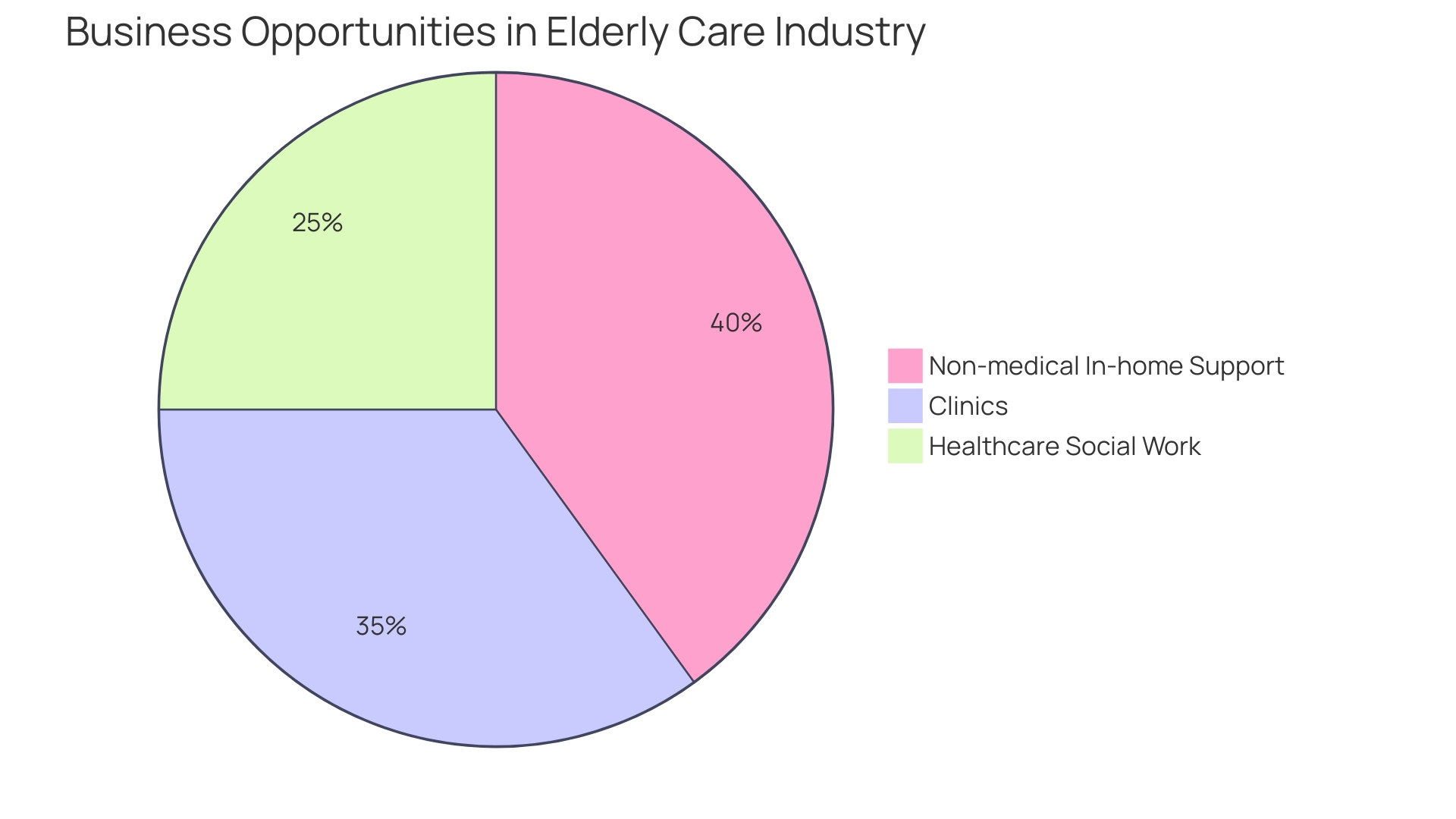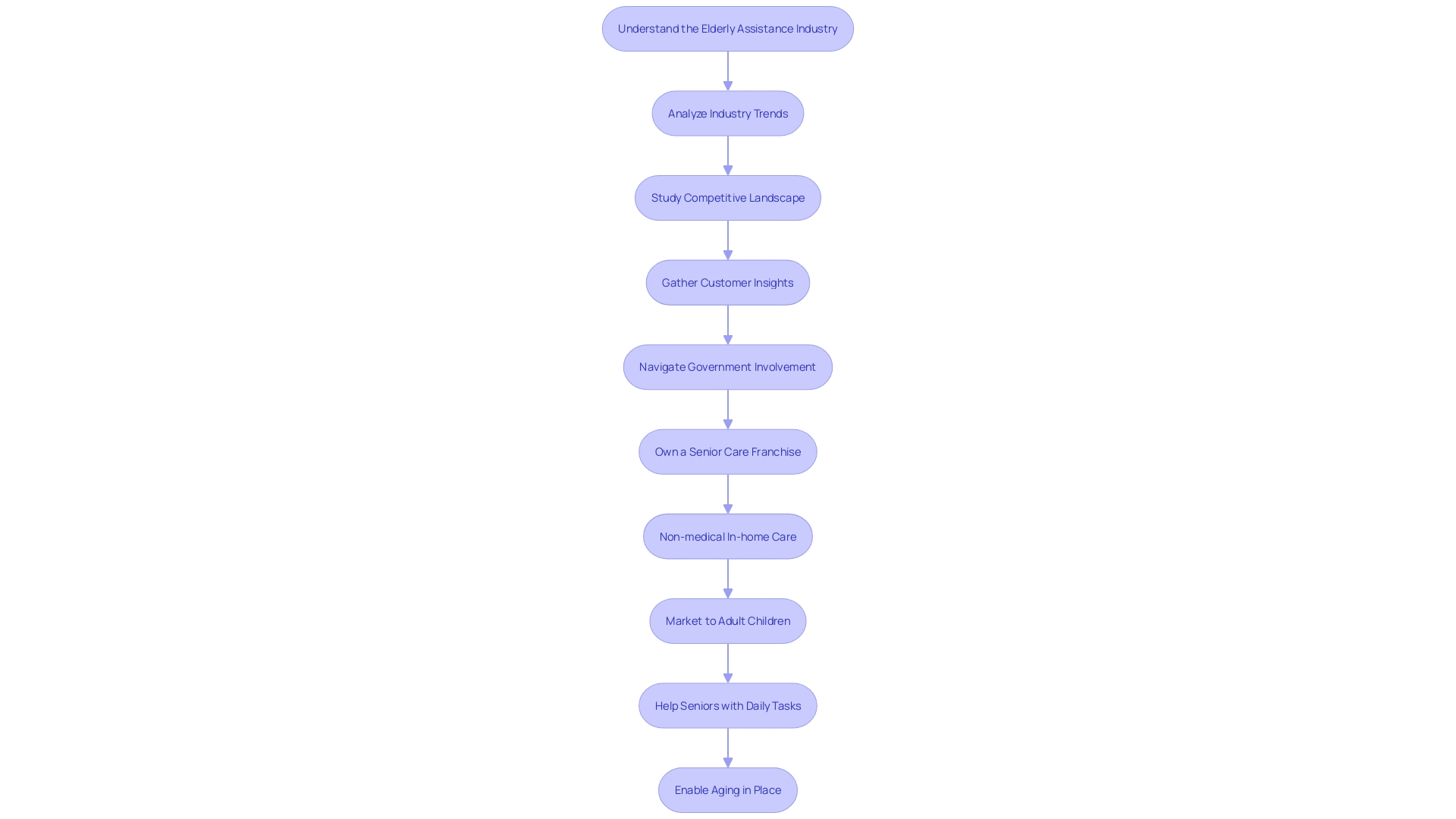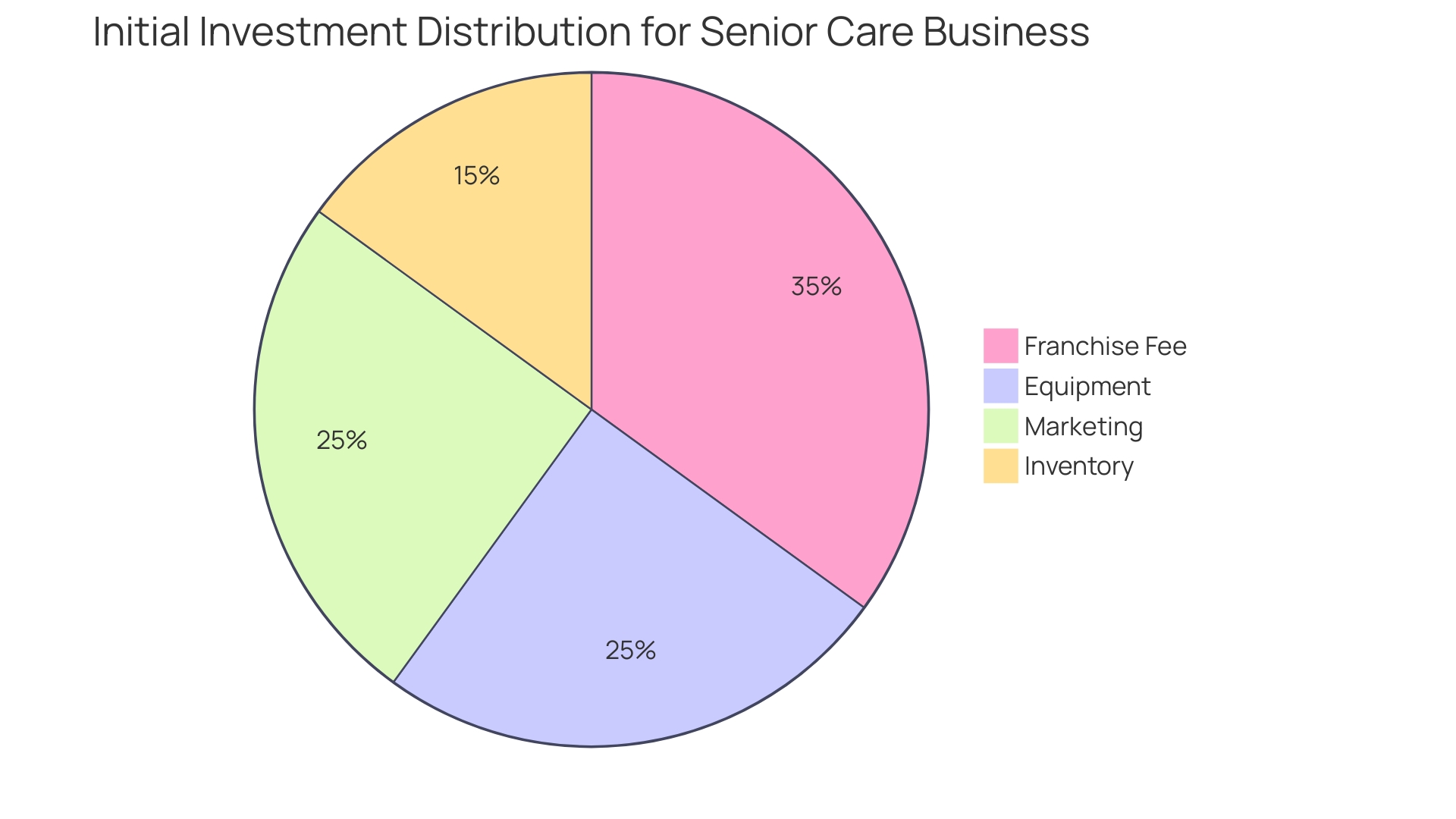Introduction
The senior care industry is experiencing significant growth, driven by the aging population and the preference for seniors to age in place. This presents a lucrative opportunity for entrepreneurs looking to invest in a senior care franchise. Operating under a recognized brand provides immediate trust and credibility, while extensive training and ongoing support ensure a smooth transition into the industry.
However, navigating government regulations and understanding reimbursements is crucial for financial health and compliance. In this article, we will explore the benefits of starting a senior care franchise, key considerations for choosing the right franchise, researching the industry and market, and determining your budget and potential return on investment. By understanding these factors, you can make informed decisions and capitalize on the significant potential in the senior care franchise market.
Benefits of Starting a Senior Care Franchise
The industry focused on the needs of older adults is ready for growth, propelled by the change in population due to the baby boomer generation reaching 65 and older by 2030, alongside the ‘aging in place’ trend where older individuals choose to remain in their homes rather than relocate to retirement communities. These factors contribute to a growing industry, with a $5 billion portion of the business opportunity available for astute business owners. Investing in a mature care model could thus offer a profitable business opportunity with multiple benefits.
An opportunity in this sector not only allows you to enter a growth market but also provides the benefit of operating under a recognized brand, fostering immediate trust and credibility among potential clients. Furthermore, franchisees gain access to extensive training and ongoing support which is particularly beneficial for those new to the arena. Economies of scale in purchasing and operations are another perk, potentially leading to reduced costs and heightened profitability.
Additionally, with the growing importance of Medicare and Medicaid in senior healthcare, comprehending government regulations and reimbursements becomes essential. While this government involvement signals financial support for the industry, it also introduces a layer of complexity due to the accompanying regulations and bureaucratic challenges. Navigating this landscape is key for maintaining financial health and compliance.
For those considering this venture, it’s crucial to investigate and comprehend the specifics of the medical business domain, which can vary from non-medical in-home support to running clinics. Even though healthcare experience is required in certain instances, the industry is open to a wider audience because of the varied range of business opportunities available. However, prospective franchisees should be aware that the industry is highly regulated, necessitating a thorough grasp of the rules before diving in. Considering the anticipated expansion of healthcare and community service professions serving the elderly, such as healthcare social workers predicted to increase by 9.6% from 2022 to 2032, the opportunity for an elderly support business is substantial.

Key Considerations for Choosing a Senior Care Franchise
Starting a business in the elderly support industry demands a well-thought-out strategy, considering various important elements that will impact your achievements. Here’s what to prioritize:
- Understanding Market Dynamics: It’s essential to delve into the demographics of your local area. With statistics indicating a significant portion of the population—25.2%—will be over 65 by 2032, identifying regions with an aging populace is key. The movement towards aging at home also emphasizes the potential for businesses that provide in-residence assistance services, tapping into an industry ready for expansion.
- Analyzing Franchise Potential: Evaluate the senior care market’s potential; it’s a sector with a promising share of a $5 billion industry. When researching business opportunities, consider those that have a strong reputation and a track record of positive feedback from both customers and business owners. Financially, make sure the investment requirements of the business opportunity are within your reach and that the expected returns align with your long-term business objectives.
- Agreement Nuances: The agreement is your business blueprint, outlining your rights and the franchisor’s expectations. This legal document is your safeguard, granting you the right to operate under the franchisor’s brand and system. It’s crucial to thoroughly review and comprehend all its terms, possibly with the assistance of legal counsel.
- Comprehensive Support: Seek out franchises that offer robust support and training. These resources are invaluable as you navigate the complexities of the healthcare sector, which can involve managing regulations and providing high-quality services. A franchisor that invests in your growth through ongoing education and operational support is a partner in your success.
- Community Impact: Remember, looking after the elderly is not just about business—it’s about community. Take into account business models that demonstrate a firm dedication to social responsibility, tackling the wider societal factors influencing health, like availability of services and community assistance.
Remember that the healthcare industry, which includes franchises for older individuals, is subject to regulations and standards that must be adhered to, ensuring the safety and well-being of the elderly population you will serve.
Researching the Industry and Market
When contemplating the path towards owning a franchise focused on elderly assistance, it is crucial to possess a thorough comprehension of the sector and its dynamics. Industry trends indicate a significant shift in the healthcare landscape, especially within dementia treatment, where cost perceptions are evolving. Sage Growth Partners’ report underlines the high healthcare costs associated with Alzheimer’s Disease and Related Dementias (ADRD), emphasizing the need for innovative solutions in light of the financial burdens these conditions pose.
Thorough analysis of the industry should cover not just the increasing expenses of ADRD but also the fast population expansion among older individuals. With one in six Americans now over the age of 65 and baby boomers reaching retirement age, the demand for elderly assistance services is expanding. This demographic shift, combined with a tendency for older adults to favor aging in place, indicates a significant market opportunity for those entering the senior living business.
Understanding the competitive landscape is another critical step. This involves studying key players in the industry to determine what unique offerings your franchise can bring to the table. As the housing and industry has undergone significant changes, particularly during the COVID-19 pandemic, technology adoption and workforce dynamics have become pivotal factors to consider.
Customer insights are vital for tailoring your services effectively. By having discussions with potential clients, you can understand their requirements, preferences, and obstacles, allowing you to create an experience for the elderly that connects with your target audience. The insights gathered from these dialogues will inform your strategic decisions and help you to stand out in a crowded marketplace.
Lastly, it’s crucial to navigate government involvement in the industry. With Medicare and Medicaid becoming more and more influential, comprehending the intricacies of government funding and regulations is crucial for guaranteeing the financial sustainability of your elderly assistance establishment. As you embark on this venture, remember that thorough research and a strategic approach are the cornerstones of success.

Determining Your Budget and Potential ROI
- Initial Investment: Begin by calculating the total initial investment needed for a senior care business. This will cover the franchise fee, equipment, inventory, and marketing costs. Having a robust financial plan to manage these expenses is essential.
- Operating Expenses: Next, tally up the monthly operating costs such as rent, staff wages, utilities, and other overheads. This step is critical to understand the regular cash outflow and how it will impact your business.
- Revenue Projections: Based on the industry data and trends, estimate your potential earnings. Take into account the significant aging population, with statistics indicating that by 2030, all baby boomers will be 65+, and the rising preference for aging in place. This could indicate a promising demand for your services.
- ROI Analysis: Evaluate your return on investment by juxtaposing the estimated revenues against the initial and recurring expenses. It is imperative to factor in the complexities of government funding, such as Medicare and Medicaid, and how they affect your profitability due to the accompanying regulations.
Remember, the senior care franchise landscape is expanding, with a market share of roughly $5 billion up for grabs, indicating a potentially profitable venture if navigated wisely.

Conclusion
To summarize, starting a senior care franchise presents a lucrative opportunity in a rapidly growing market. Operating under a recognized brand provides immediate trust and credibility, while extensive training and ongoing support ensure a smooth transition into the industry. Understanding government regulations and reimbursements is crucial for financial health and compliance.
When choosing a senior care franchise, consider market dynamics, franchise potential, franchise agreement nuances, comprehensive support, and community impact. Researching the industry and market is vital to understand industry trends and the competitive landscape. Gathering customer insights will help tailor services effectively.
Determining the budget and potential return on investment involves calculating the initial investment, operating expenses, revenue projections, and conducting an ROI analysis. It is crucial to factor in government funding complexities and regulations when evaluating profitability.
Overall, with a projected market share of $5 billion, the senior care franchise industry offers significant potential for entrepreneurs who approach it strategically and navigate the regulatory landscape effectively. By understanding the benefits, key considerations, industry research, and financial aspects, aspiring franchisees can make informed decisions and capitalize on the opportunities in this growing market.
Take advantage of the lucrative opportunity in the rapidly growing senior care franchise market.


